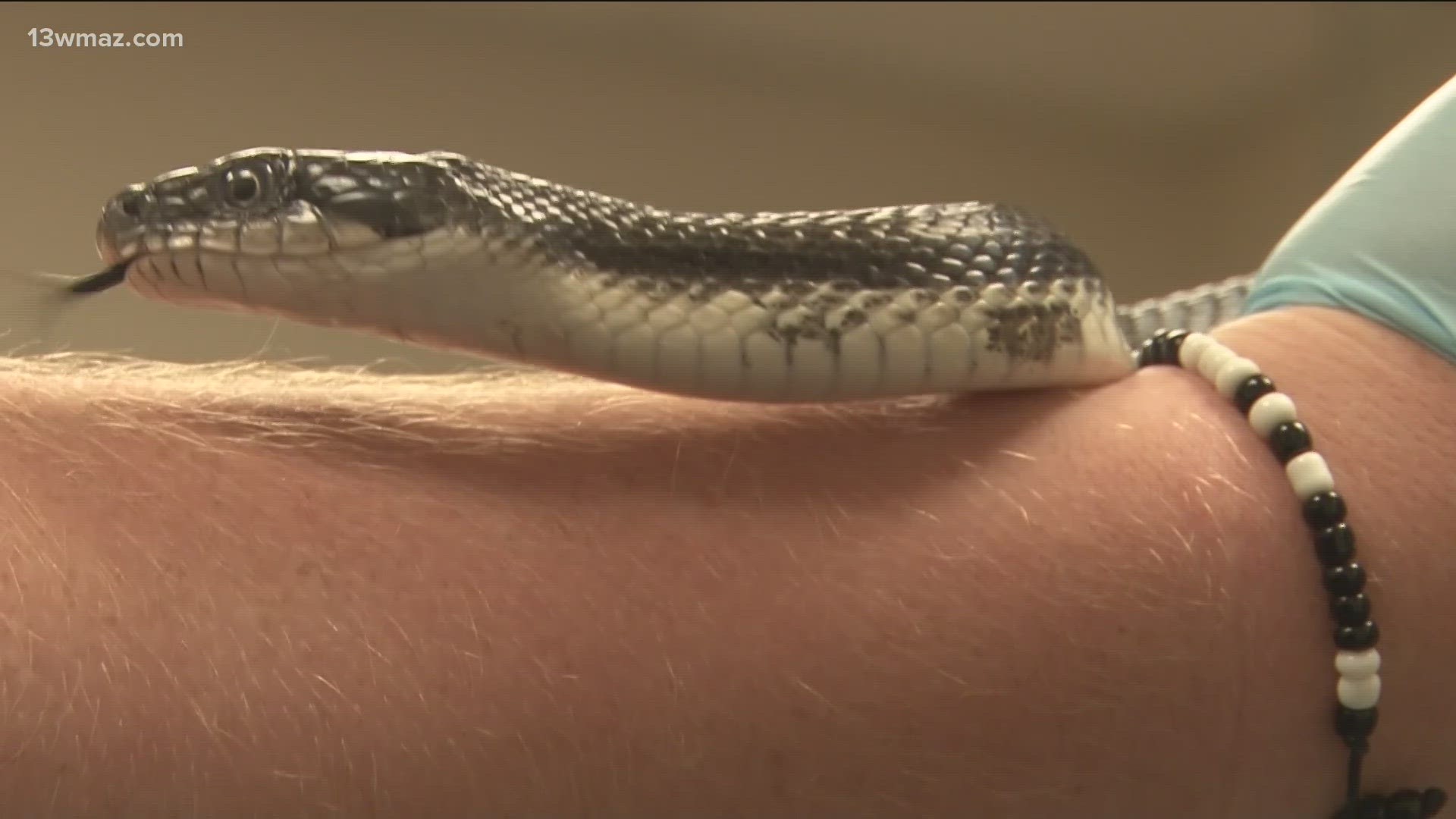MILLEDGEVILLE, Ga. — One Georgia College professor and his students are using technology to uncover the sss-ecret lives of snakes.
He says they're more important than we know.
Assistant Professor in the Department of Biological and Environmental Sciences, Dominic DeSantis says snakes have a bit of a secret life. They're hard to track and hard to find.
He says this is why they're even more important to study.
"I really love snakes, so I really wanted to be able to study them,” DeSantis said.
DeSantis is doing just that with several students in this lab. However, he says the lives of snakes are mysterious and complex.
"We know they're important, we know they're critical, but that role is kind of murky because they're relatively hard to study," he said.
DeSantis says snakes like to avoid humans, so they're hard to track. Typically, researchers use radio telemetry to locate them. It's a method that’s been used for decades with snakes.
"It's just implanting a transmitter into a snake and using an antenna to locate the snake in the field whenever we want to,” he said.
However, this method just helps find them.
DeSantis says in between their trips every Tuesday and Friday to the field site to capture, tag, and study snakes, they have no idea what snakes are doing, or where they're going.
“So, we wanted to find a way to bridge the gaps, and so that's how accelerometry came in,” he said.
An accelerometer, typically used to study large mammals, measures vibrations or changing motions. It's like a smart watch tracking your steps.
DeSantis says he developed a new, smaller version to put on snakes.
"We implant on the snake, wave a magnet over it, that activates it, and It just records for about nine months to determine when the snakes are moving, or when they're immobile, or even when they're eating, or swallowing prey, or even when they’re reproducing,” he said.
DeSantis says their work’s objective is to not only help improve the methods of study of snake behavior, but to also observe the large role snakes play in the local ecosystem.
He says snake populations are declining for multiple reasons.
“We noticed this, kind of, disturbing pattern across most of the state level analysis that not only were populations disappearing, or in decline, but there seemed to be a lot of common factors in those declines,” DeSantis said. “Like habitat loss and destruction that affect all organisms, but also the effects of roadways on their behavior, and one of them was this emerging pathogen, a lot of people refer to it as snake fungal disease, that attacks their skin.”
DeSantis says understanding this fungal disease is the objective of multiple studies his students are conducting. He says in order to help these populations, we have to know more about them.
“As they simultaneously serve as both predators and prey, those are kind of the webs of interactions that make an ecosystem that maintain energy flow,” he said. “When you begin losing those linkages, then ecosystems tend to change or fall apart.
That failing ecosystem could eventually affect us.
“You know, leveraging those technologies really gives us the ability to kind of improve upon understanding what that role is,” DeSantis said.
Jack Powers, a senior and biology major, loves snakes too.
"That we can uncover these secretive lives of snakes is so exciting to me,” he said.
Powers says his study focuses on studying how snakes choose to spend their winter: in solitary, or in a group.
“I just thought it’d be really cool to be able to see what are the trade offs to each one, what are the factors that influence whether to over winter solitarily, or communaly?”
Powers says they’re doing important research work to help maintain the ecosystem, but he hopes the work also crushes stereotypes, and fear surrounding snakes.
"I love being able to uncover their little, tiny personalities that they have. The tiny little quirks that they have. I think that's what I love the most,” Powers said.
DeSantis says they've pioneered this technology and other institutions have recently reached out to collaborate using the accelerometer.
He says if you have some snakes you'd like removed, he says to contact him at 478-445-5648.

